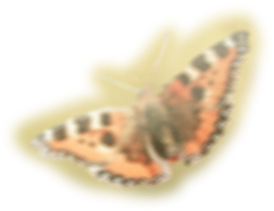The biggest winery in Italy and its "sustainable vision" that is always ahead of the trends. An interview with the CEO, SimonPietro Felice.
You can imagine what it means for a 6-year-old child, on the first day of school, when everyone asks your name, to reply: Tessa. "Yes, Tessa, T e s s a".
If you are called Marco, Paola, Anna, you can't possibly imagine the pride with which I have always stated my original, demanding name in a world where almost everyone has the same names.

If I was never ashamed or embarrassed, it is because I was brought up "differently", by parents who encouraged me to see diversity as an asset, something "cool" that distinguishes you from the others, who are "all the same and all do the same things"; they started right away, right from my name, so there could never be any doubt that I would be unusual.
"Unusual" and unique, as we all are until, in order to feel less uncomfortable with the other children, we start to imitate them and file away the differences to fit into the group we want to belong to.
I believe it is a legacy from the distant past, when we were monkeys, an ancestral mechanism of a species for which the pack is the only salvation: the easiest way to be accepted by the group is by losing ourselves in it.
This was an option I never had: few clothes, but of excellent quality in order not to give into the growing popularity of fast fashion, little television and a lot of travel, no packaged food or fizzy drinks at home, and, above all, an apple as my breaktime snack.
We were in the midst of the 80s, and I believe I was the only one at school who pulled from my backpack (obviously made from cloth, the work of the skilled hands of craftsmen) something other than a packaged sweet snack. I wasn't particularly happy about this, not because I was ashamed of eating an apple - I never felt uncomfortable about my difference - but I really liked those snack bars...
It was certainly an innovative upbringing for the times, my parents' technique: as free spirits, they broke the dominant frameworks and anticipated many of the trends and lifestyles that are popular today. A sustainable lifestyle.
Of course I cannot judge the result they achieved with me, but I can certainly say that I have become a person with a way of thinking and seeing things that does not conform to the standard, and diversity of thought is an enormous advantage in a society.
Because it is only from diversity that we can create change, innovation, resilience, evolution.
You only need to look at nature to understand the importance of diversity, of biodiversity.
Millions of living species, thanks to their diverse genetic inheritance, have managed to find their place in the world by adapting to specific environmental conditions. Even within the same species, there is also diverse genetic inheritence between individuals that gives them a better chance of survival; one will have a characteristic that makes him more adapted, and thanks to the mechanisms of natural selection, this will be transmitted to the next generations, making the species ever more "high-performing" with respect to the environment in which it lives.

Because the environment also changes (now also caused by man, and it is happening too fast for the rate of evolution), and if no specimen has a genetic difference that makes it more adapted to living in the new environment, the species is destined for extinction. The more differences there are, the lower the probability of becoming extinct. This is the force of diversity!
If there were only one plant species in a field of grass, a fire could turn it into a desert, but there are species resistant to fire, and life restarts from them. Without biodiversity, we are vulnerable in the face of changes and adversity; the weapon of resilience in biology is diversity.
Farmers knew this well when they cultivated many varieties of cereals, vegetables, fruit trees; they would never have dreamed of growing the hectares and hectares of monocultures that today are rampant - if something had gone wrong, they would have lost everything.
With the arrival of chemistry, everything changed: insecticides, herbicides and fertilisers gave the illusion of being able to sidestep the rules of life, but that was not the case. The bill has arrived in the form of pollution that poisons the earth, air and water, loss of nutrients from the soil, a decrease in biodiversity, climate change, and less capacity for resilience in production and the land.
Luckily, things are changing, and more and more people and companies are turning towards more sustainable methods, in order to restore the balance of the laws of nature. Organic, sustainable cultivations using integrated farming, recovery of ancient varieties, circular economies in agricultural companies, and the restoration of biodiversity to the fields are becoming ever more widespread practices.
People and companies who have anticipated a change that all of society will inevitably have to make, in order to become sustainable and restore the balance of natural ecosystems; an anticipated evolution from those who today are considered "different", but who, thanks to this fact, have the ability to innovate and lead the way.
The biggest winery in Italy and its "sustainable vision" that is always ahead of the trends. An interview with the CEO, SimonPietro Felice.
Climate change: according to philosopher-influencer Rick DuFer, creating individual awareness is the key to pushing everyone towards action.
